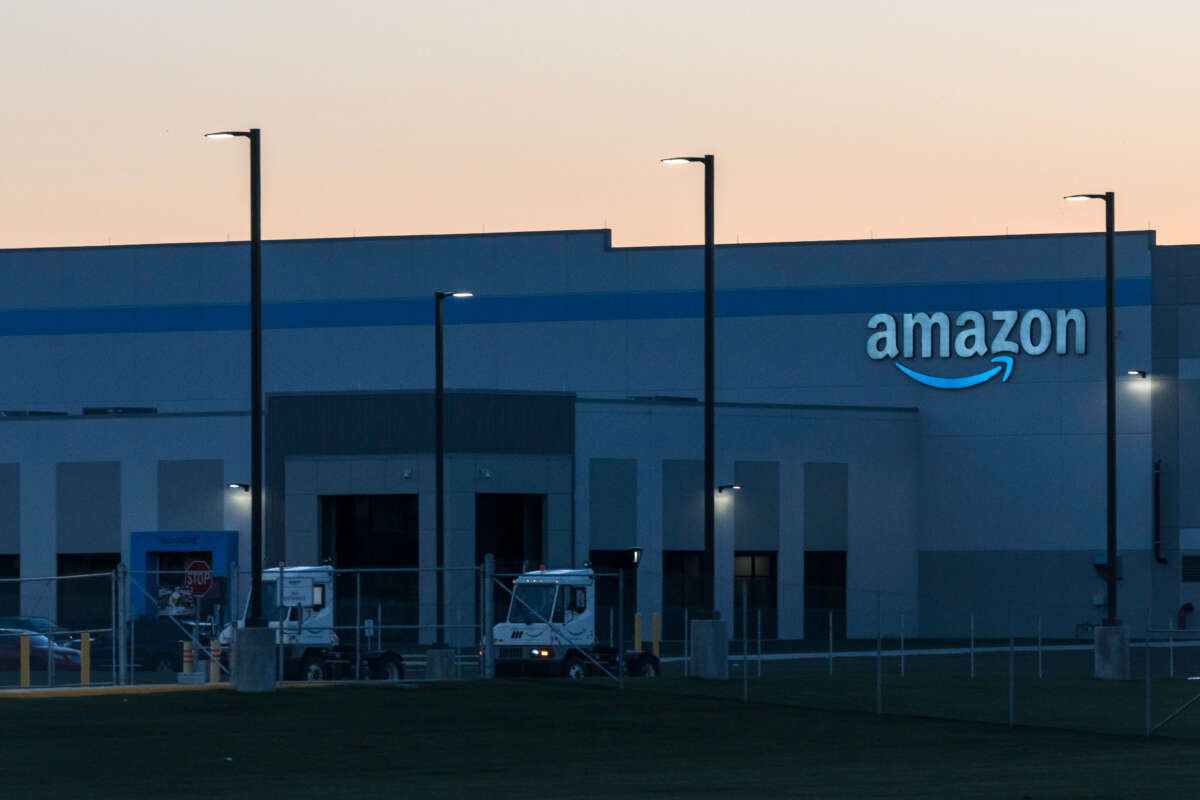Honest, paywall-free news is rare. Please support our boldly independent journalism with a donation of any size.
After an 11-week investigation into the workplace death of Caes Gruesbeck, a 20-year-old employee at an Amazon distribution center in Fort Wayne, Indiana, safety officials fined the company only $7,000, despite finding that Amazon failed to ensure a workplace “free from recognized hazards that were causing or likely to cause death,” and issuing a serious safety citation.
“Seven thousand dollars for the death of a 20-year-old? What’s that going to do to Amazon?” Stephen Wagner, an Indiana attorney, told The Washington Post. “There’s no real financial incentive for an employer like Amazon to change their working environment to make it safer.”
Gruesbeck died at the distribution center when trying to clear an obstruction on an overhead package conveyor. His head collided with the conveyor, and he became trapped by the machinery.
“Think about that for a moment: $7,000 for a life. You can buy a lot with seven grand, but you can’t buy back a lifetime of joy and despair, love and struggle, laughter, tears, and humanity,” labor activist and journalist Kim Kelly wrote for Teen Vogue in September. “[W]e are worth so much more than $7,000.”
A $7,000 fine is the maximum fine available for cases like Gruesbeck’s in Indiana; and in 22 other states, those fines can be even lower. Indiana also bars families from suing for wrongful death in civil courts.
Since 2022, the Occupational Safety and Health Administration (OSHA) has filed at least half a dozen safety violations against Amazon, America’s second-largest private employer. However, cases like Gruesbeck’s show the limitations of state and federal regulators to hold companies accountable and effectively enforce labor protections. While OSHA raised the minimum fines for safety violations, the penalty for repeat violations, and the penalty for serious violations in 2016, former OSHA chief of staff Debbie Berkowitz told The Washington Post that OSHA penalties remain “ridiculously low — even for fatalities where the company violated the law.”
In September, Olivier De Schutter, the UN-appointed independent expert on extreme poverty and human rights, demanded that Amazon address allegations that the company provided inadequate pay to employees and engaged in hostile union-busting tactics.
“Multi-billion-dollar companies should be setting the standard for working conditions and wages, not violating the human rights of their workers by failing to pay them a decent wage,” De Schutter said in a letter to the company.
A 2020 Government Accountability Office report found that Amazon was among the top employers of recipients of government medical and food assistance and, in 2022, Amazon purportedly spent more than $14.2 million on anti-union consultants
On Black Friday, Amazon workers across the world walked off the job in a “Make Amazon Pay” strike to protest poor working conditions, low pay, union busting and unsafe working conditions.
“Our collective actions are gaining momentum, challenging Amazon’s unfair practices and advocating for workers’ rights and a sustainable future for all,” said Stuart Appelbaum, president of the Retail, Wholesale and Department Store Union which led a recent Alabama union organizing drive at the company. “Together, we can Make Amazon Pay.”
Press freedom is under attack
As Trump cracks down on political speech, independent media is increasingly necessary.
Truthout produces reporting you won’t see in the mainstream: journalism from the frontlines of global conflict, interviews with grassroots movement leaders, high-quality legal analysis and more.
Our work is possible thanks to reader support. Help Truthout catalyze change and social justice — make a tax-deductible monthly or one-time donation today.
